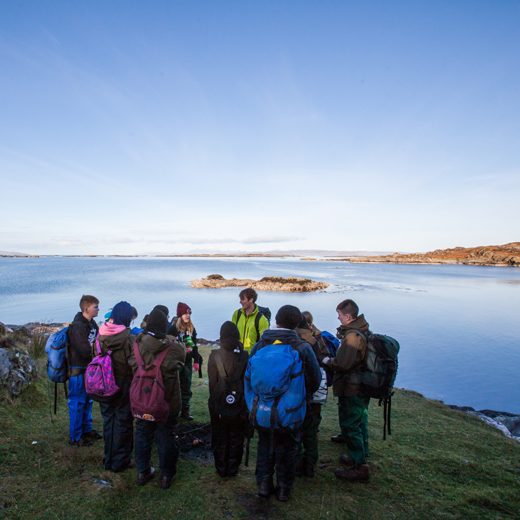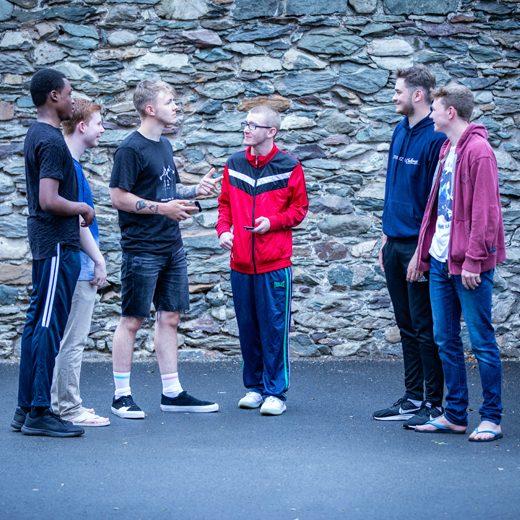‘Social prescribing’ is at the heart of the NHS long term plan, as part of their mission to deliver universal personalised care. But what is it, how does it work in practice, and can we prescribe ourselves a dose of the stuff?
What is social prescribing?
Social prescribing is a means of enabling GPs and other primary care professionals to refer people to a range of local, non-clinical services. It is a non-medical referral option that can operate alongside existing treatments. It recognises that people’s health is determined by a range of social, economic and environmental factors, and addresses people’s needs in a holistic way.
Social prescribing schemes can involve a variety of activities such as volunteering, art activities, group learning, gardening, befriending, cookery, healthy eating advice and a range of sports.

Put simply, it's about encouraging people to take part in activities that can impact positively on their individual wellbeing and resilience. It includes any activity that promotes wellbeing and self-care, encourages social inclusion and builds resilience for the individual and the community. Social prescribing is about treating the patient – not the illness.
The benefit of social prescribing is that it can put individuals in the driving seat. When carried out effectively, it can provide building blocks for personal learning and creates an opportunity for lasting behaviour change.
Does it work?
Social prescribing is seen to work for a wide range of people, including those:
- With one or more long-term conditions
- Who need support with their mental health
- Who are lonely or isolated
- Who have complex social needs which affect their wellbeing

In theory, social prescribing is an excellent idea. There is some emerging support for its positive effect, with outcomes including:
- Improved health and quality of life
- Fewer primary care consultations and reductions in hospital admissions
- A decrease in the use of wider hospital resources
Unfortunately, robust evidence to support its success or value for money is limited. But all is not lost. There is growing evidence to support the positive impact of engagement with nature and physical activity on health and wellbeing, as The Guardian reported. These are two common ‘prescriptions’ under the practice of social prescribing – with GPs in Scotland now prescribing nature to their patients and GPs across the UK developing close links with their local Parkrun.
So why are we talking about it?
Unsurprisingly, here at Outward Bound we think social prescribing is a great concept. We are personal advocates of getting outdoors for our physical and mental health, and most of us try to take a daily dose of this eco-medicine – whether it’s through a mountain ascent or a walk in the park.
But personal preferences aside, we can see great value in being one step ahead of GP and getting stuck into an activity – together, in our communities, in nature – or anywhere, to boost individual wellbeing.
Young people today are facing increasing academic pressures and complex social worlds. We know that many young people struggle with their mental health and wellbeing. For instance, Public Health England (PHE) suggests that in an average class of 30 pupils aged 15:
- 10 are likely to have witnessed their parents’ separation
- 3 of them could have a mental disorder
- 7 are likely to have been bullied
- 6 are possibly self-harming
- 1 may have experienced the death of a parent

We also know that physical and mental health are inextricably linked. Wellbeing and health are holistic terms, referring to our physical, mental and social states. They mean more than just the absence of pain but also having a sense of purpose, achievement, and security. That’s why social prescribing, as a holistic approach to wellbeing, can be highly effective in addressing both the physical and mental issues that young people might be dealing with.
We’ve written about this elsewhere, too. Social prescribing resonates with the New Economics Foundation Five Ways to Wellbeing framework, which advocates five evidenced-based activities: Connect; Be Active; Take Notice; Keep Learning, and Give. We’ve also thought about what schools can do to promote the mental health of their pupils and the benefits the outdoors can have on mental wellbeing. To us, encouraging young people to connect with each other can be an easy way to improve their wellbeing.
The take home message
Social prescribing offers a focus on wellness rather than illness. It is based on a set of values which are about harnessing existing personal and community assets to achieve wellbeing.
But surely we don’t need a GP to ‘prescribe’ activities? Perhaps we can cut out the middleman and start building a little bit of social prescribing into our own work and life cultures.
Further Reading
Connecting to Nature
Find out more about how connecting to nature can help young people's mental health and wellbeing.
Emotional Resilience
Find out how building resilience can help with emotional wellbeing.


